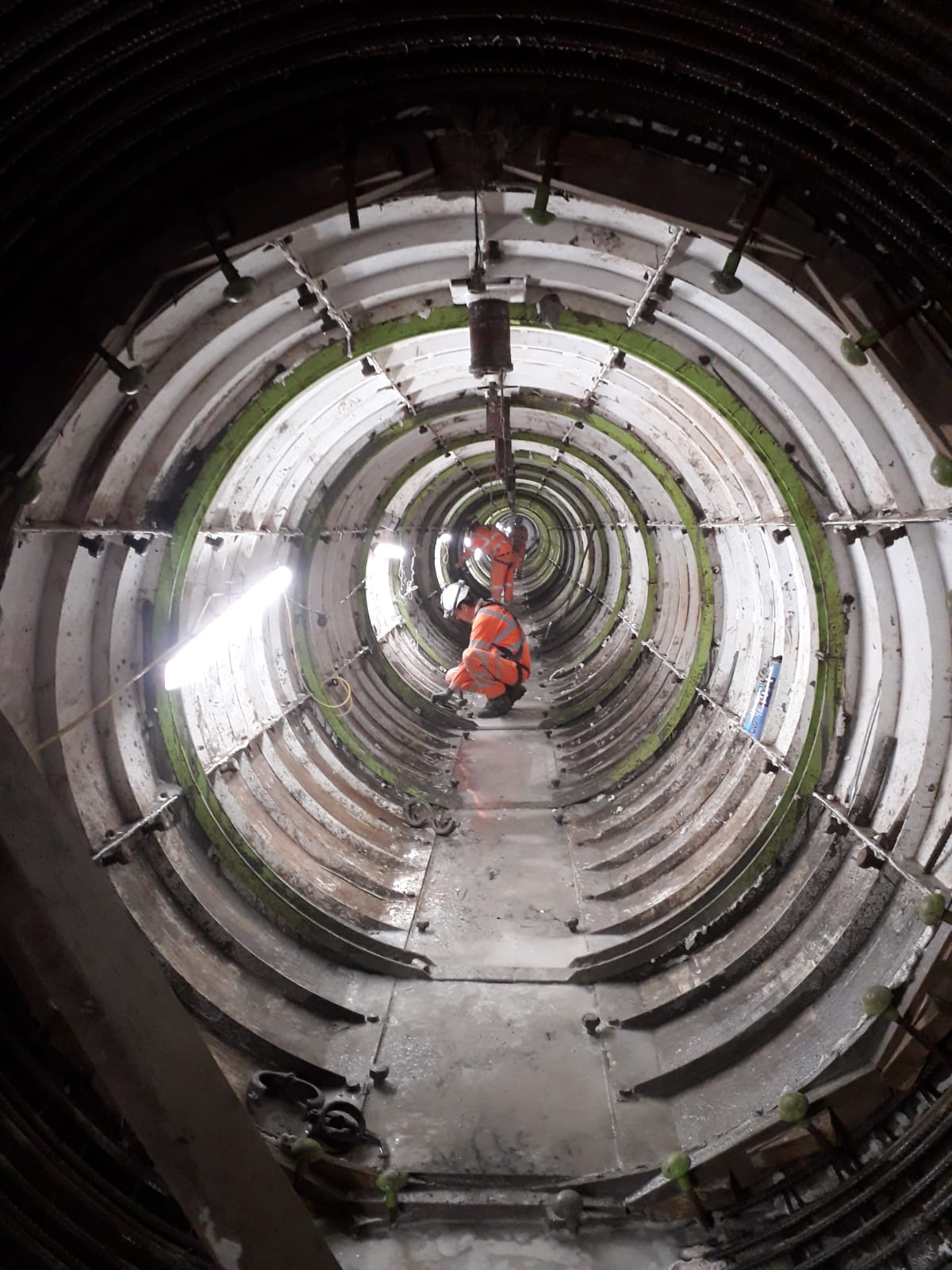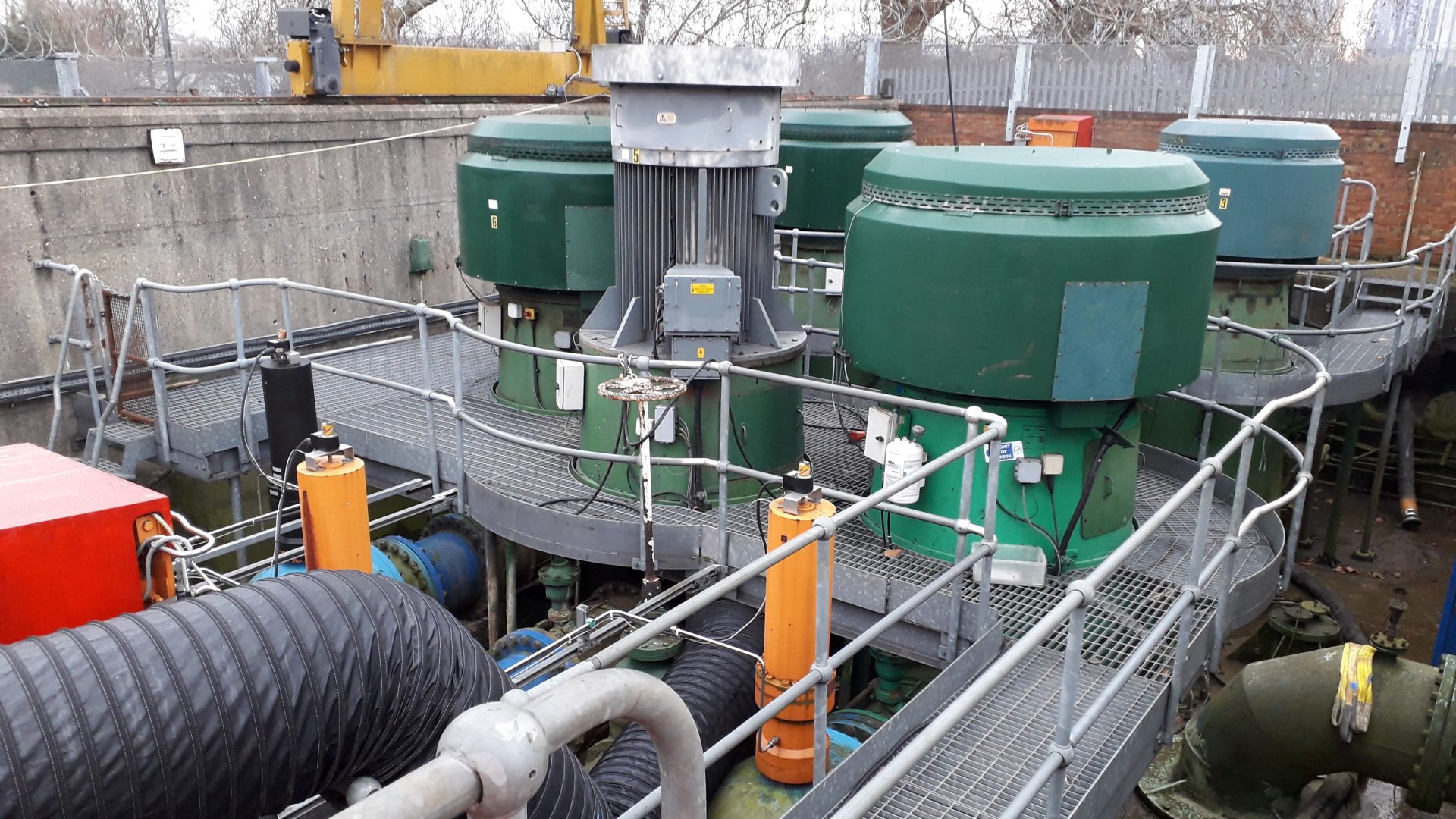
Thames Water has selected Barhale to reinforce a section of what was once believed to the longest tunnel in Europe and a key source of raw water for East London.
The strategically important Thames Lee Tunnel (TLT) was built between 1955 and 1959 to carry water from the River Thames at Hampton Water Works to Lockwood Pumping Station at the Lee Valley Reservoir Chain. The 19-mile (31 km) tunnel, runs at a depth of 68 to 190 feet (21 to 58 m) and passes through 24 access shafts of 12 feet (3.7 m) diameter. It was designed to transfer 120 million imperial gallons (550 megalitres) of water per day.
The contract will see civil engineering and infrastructure specialist Barhale reinforce a 70 metre length of the 102-inch (2.6 m) diameter concrete-lined tunnel water main where it runs across the route of HS2 in North London.
The location of the works will necessitate an unusually long concrete pump – 800m horizontal plus the almost 50 metre depth of the Barrow Hill shaft at Primrose Hill – to the site of the works. Barhale has been working with Caumford to design a bespoke pumping solution.
Shane Gorman, Barhale’s Water Director – Southern Region, highlighted the importance of the Thames Lee Tunnel as part of London’s water infrastructure:
“The need for the TLT was identified both to address drought conditions and to meet the requirements of new housing and development in East London after the Second World War,” he said. “For more than sixty years it has played an essential role transporting water across the capital and these works are an important measure to reinforce a key part of London’s water distribution network.
“The section we are working on offers some additional challenges: the actual site of the relining is an unusually long distance from an access shaft and the levels of service and utility congestion in Camden means that we can’t sink boreholes. So designing a concrete-pumping solution that will work over more than half a mile has been a key focus.
“We have worked closely with Thames Water on the design and scheduling of this project. Such is the strategic importance of the Thames Lee Tunnel that outages can only be scheduled for certain times of the year and they are contingent upon general storage levels across the rest of the network.
“We have now identified a suitable window and look forward to successful completion in February 2024.”



